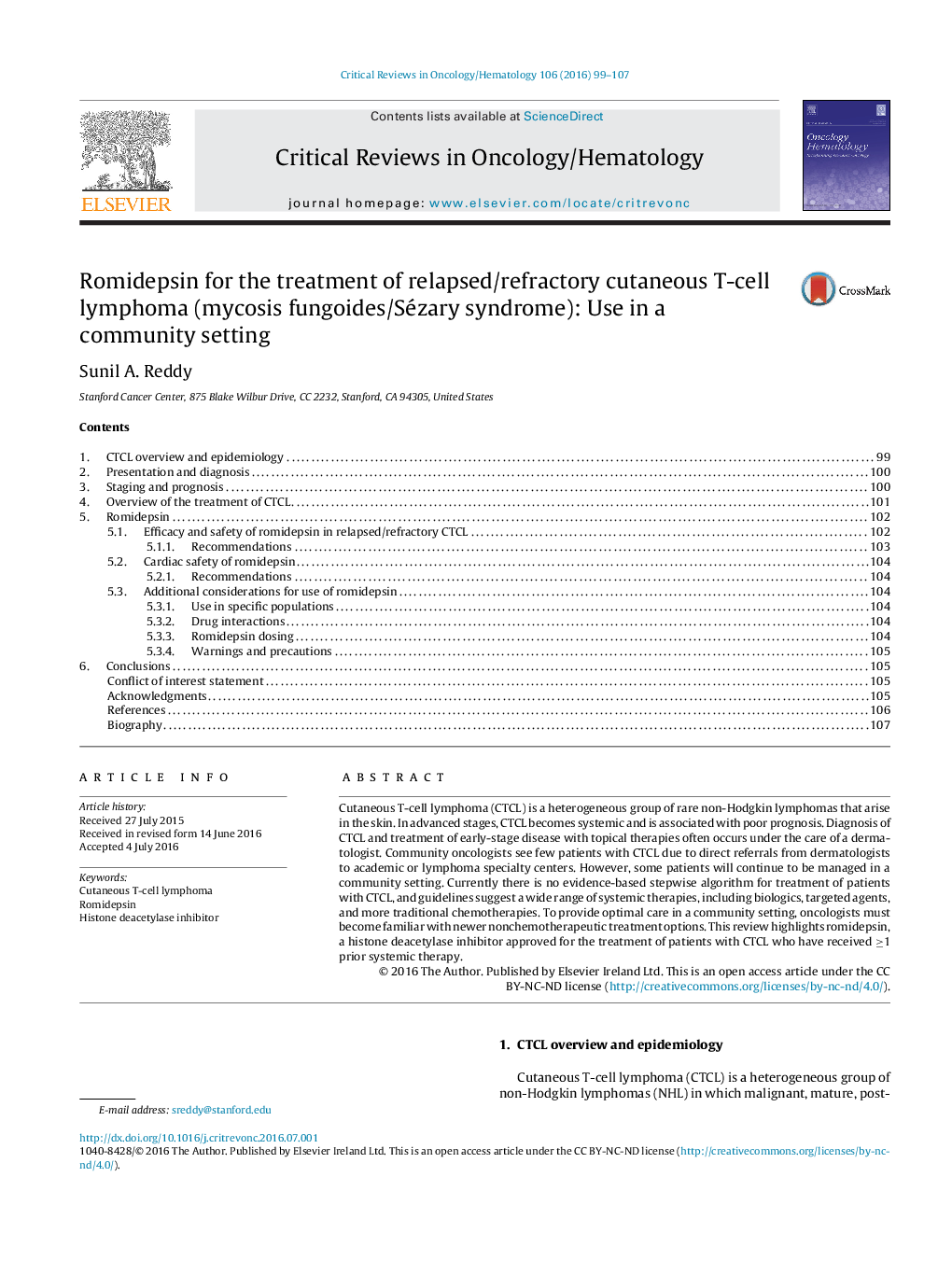| Article ID | Journal | Published Year | Pages | File Type |
|---|---|---|---|---|
| 6113296 | Critical Reviews in Oncology/Hematology | 2016 | 9 Pages |
Cutaneous T-cell lymphoma (CTCL) is a heterogeneous group of rare non-Hodgkin lymphomas that arise in the skin. In advanced stages, CTCL becomes systemic and is associated with poor prognosis. Diagnosis of CTCL and treatment of early-stage disease with topical therapies often occurs under the care of a dermatologist. Community oncologists see few patients with CTCL due to direct referrals from dermatologists to academic or lymphoma specialty centers. However, some patients will continue to be managed in a community setting. Currently there is no evidence-based stepwise algorithm for treatment of patients with CTCL, and guidelines suggest a wide range of systemic therapies, including biologics, targeted agents, and more traditional chemotherapies. To provide optimal care in a community setting, oncologists must become familiar with newer nonchemotherapeutic treatment options. This review highlights romidepsin, a histone deacetylase inhibitor approved for the treatment of patients with CTCL who have received â¥1 prior systemic therapy.
